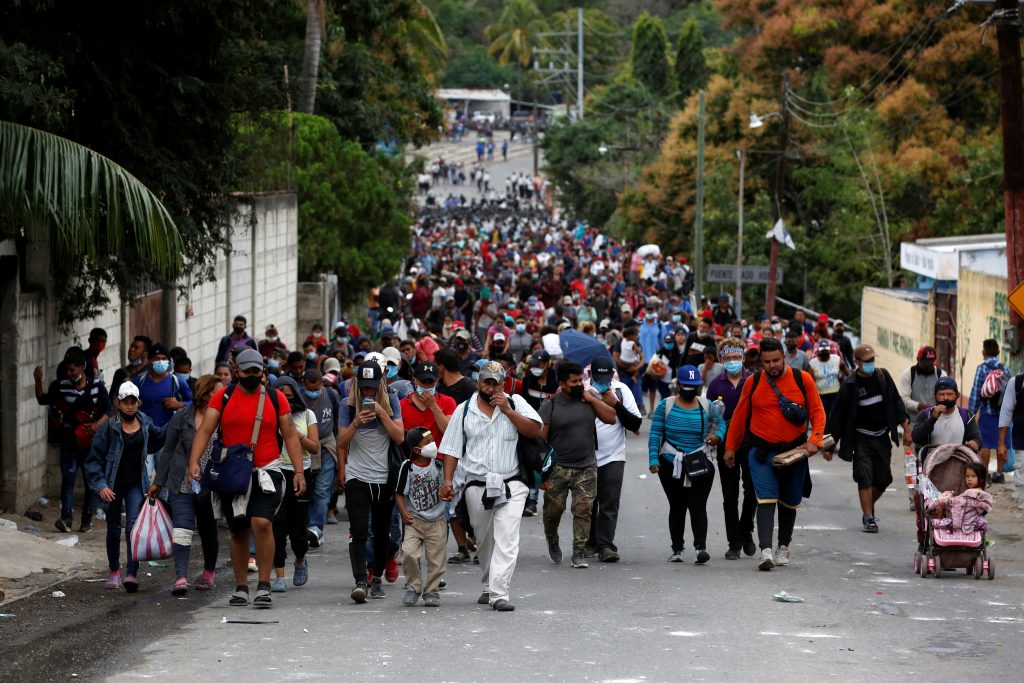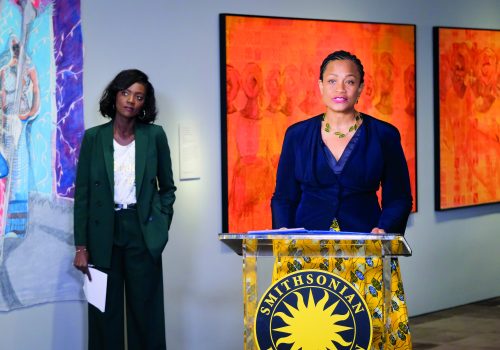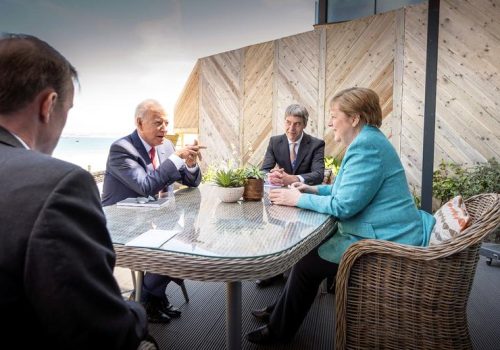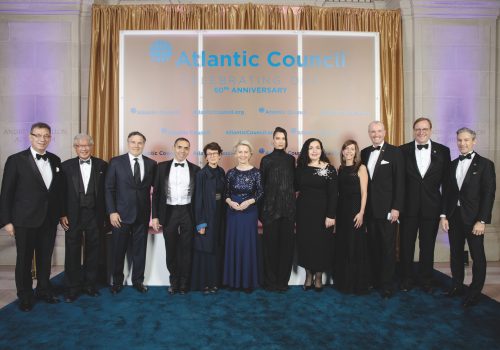Shaping understanding of Latin America and the Caribbean’s global importance.
The Adrienne Arsht Latin America Center broadens understanding of regional transformations and delivers constructive, results-oriented solutions to inform how the public and private sectors can advance hemispheric prosperity. The center focuses on Latin America’s strategic role in a global context with a priority on pressing political, economic, and social issues that will define the trajectory of the region.
2021 was a challenging year for Latin America and the Caribbean. Although the region was the hardest-hit by the COVID-19 pandemic, accounting for over 30 percent of worldwide COVID-19 deaths, the hemisphere grew hopeful as coronavirus vaccines became available. Committed to promoting equitable access to vaccines across the region, the Adrienne Arsht Latin America Center worked with new partners to accelerate US vaccine assistance, with a special focus on the Caribbean and Colombia. As vaccination rates increased, attention shifted to how to rebuild from the pandemic in a way that better positions countries for the future. In response, the center, in collaboration with the Atlantic Council’s Scowcroft Center and the Inter-American Development Bank, launched a new scenario-planning project that helped to identify the key factors shaping the region’s post-COVID-19 outlook by 2025.
Central America quickly became a top priority for the incoming Biden administration given the migration surge at the US border. The Adrienne Arsht Latin America Center took this opportunity to build on its previous work regarding the root causes of migration by galvanizing support for actionable solutions that address the region’s most salient issues, including sustainable economic development, rule of law, climate change, and violence. The center was also critical in helping to inform the US administration’s policy toward Central America in a private briefing with Vice President Kamala Harris prior to her first trip to the region. In parallel, while nuanced and dedicated attention to the Caribbean has often eluded policymaking, the center established the Caribbean Initiative to advance US-Caribbean priorities and ties. Enhancing prosperity in the Caribbean will be increasingly critical to US interests.
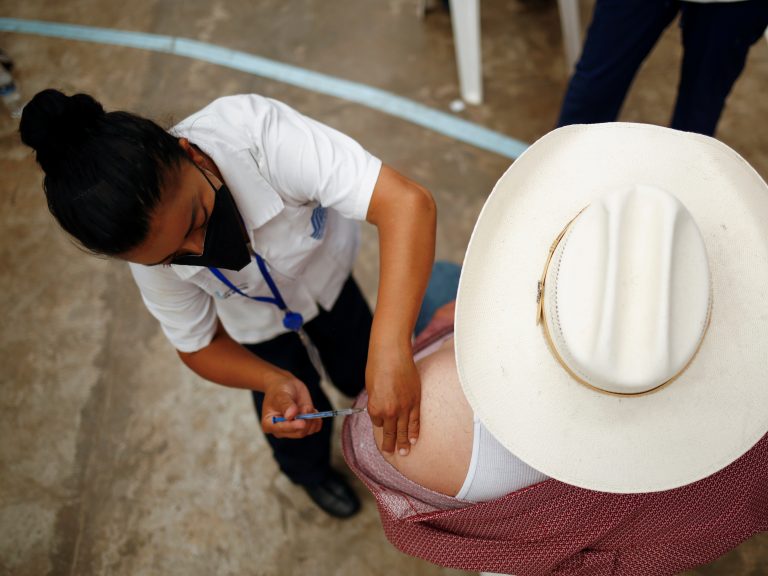
Ahead of the ninth Summit of the Americas in 2022, the center partnered with the US Department of State to promote US partnership across Latin America and the Caribbean and bring together new stakeholders that can help shape the future of the region and enhance hemispheric cooperation. With another political stalemate taking place in Venezuela while the humanitarian crisis continues to unravel, the center convened a multidisciplinary high-level working group focused on bridging political divides and fostering democratic stability. The center helped to build momentum in Venezuela around the importance of including the voices of women in all political spaces including the political dialogue that was taking place in Mexico. The Adrienne Arsht Latin America Center hosted seven heads of state and convened far-reaching dialogues with three Mexican secretaries, Brazil’s economy minister, and US senators and representatives to highlight the strategic role that the region plays in today’s global context.
Vision for 2022
In 2022, pivotal elections will take place in Brazil and Colombia, and the Adrienne Arsht Latin America Center will play an important role in identifying and harnessing opportunities for the United States to strengthen and deepen its relationship with Latin America and the Caribbean to ensure the prosperity of the region.
To this end, the center will launch the Brazilian Alliance for Democracy to promote closer ties between the US government and Brazil while reinforcing the importance of Brazil as a key ally to democratic stabilization in the Western Hemisphere. With the bicentennial of the US-Colombia relationship taking place in 2022, the center will publish a book on the future of the relationship and continue enhancing the importance of the link between the two countries, with the support of the Atlantic Council’s US-Colombia Task Force, led by Senators Roy Blunt (R-MO) and Ben Cardin (D-MD). Additionally, the center’s work around the ninth Summit of the Americas will focus on engaging new allies to expose bold and innovative solutions that seek to bring the hemisphere closer together, forging new ties with the Caribbean and Latin America.
With global concerns shifting to post-pandemic economic recovery, the center will launch the #ProactiveLAC series to provide key insights to public and private sector leaders on how to emerge stronger from the pandemic. Providing nuanced understanding of the growing role of China in the hemisphere will continue to be a priority.
The Adrienne Arsht Latin America Center’s Caribbean Initiative will release a derisking report tackling a top issue: the withdrawal of correspondent banking relations and its implications for Caribbean citizens. The center will be at the forefront of a study on the economic impact of implementing enhanced technologies at the US-Mexico border, in partnership with the Hunt Institute for Global Competitiveness at the University of Texas at El Paso and Colegio de la Frontera Norte in Tijuana. In 2022, the center will also launch the Venezuela Transatlantic Fellowship to promote closer ties and collaboration between the United States and the European Union on Venezuela policy.
Next
Read the full report
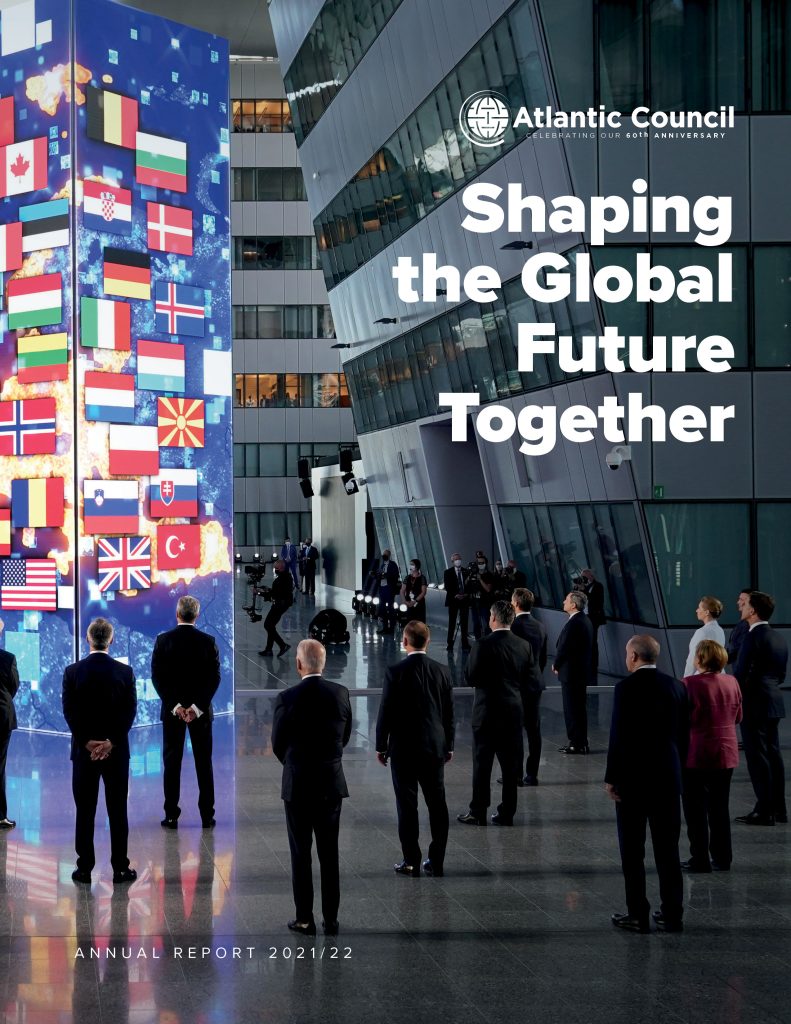
Annual Report 2021/2022
The Atlantic Council has never been more robust operationally, substantively, or financially in its sixty-year history. This comes at a time when our work has never been more crucial in the face of complex, daunting, and worldwide challenges.
Image: Honduran migrants walk toward El Florido border crossing point to return to their country after Guatemalan security forces cleared a road where they were camping after authorities halted their trek to the United States, in Vado Hondo, Guatemala January 18, 2021. REUTERS/Luis Echeverria
